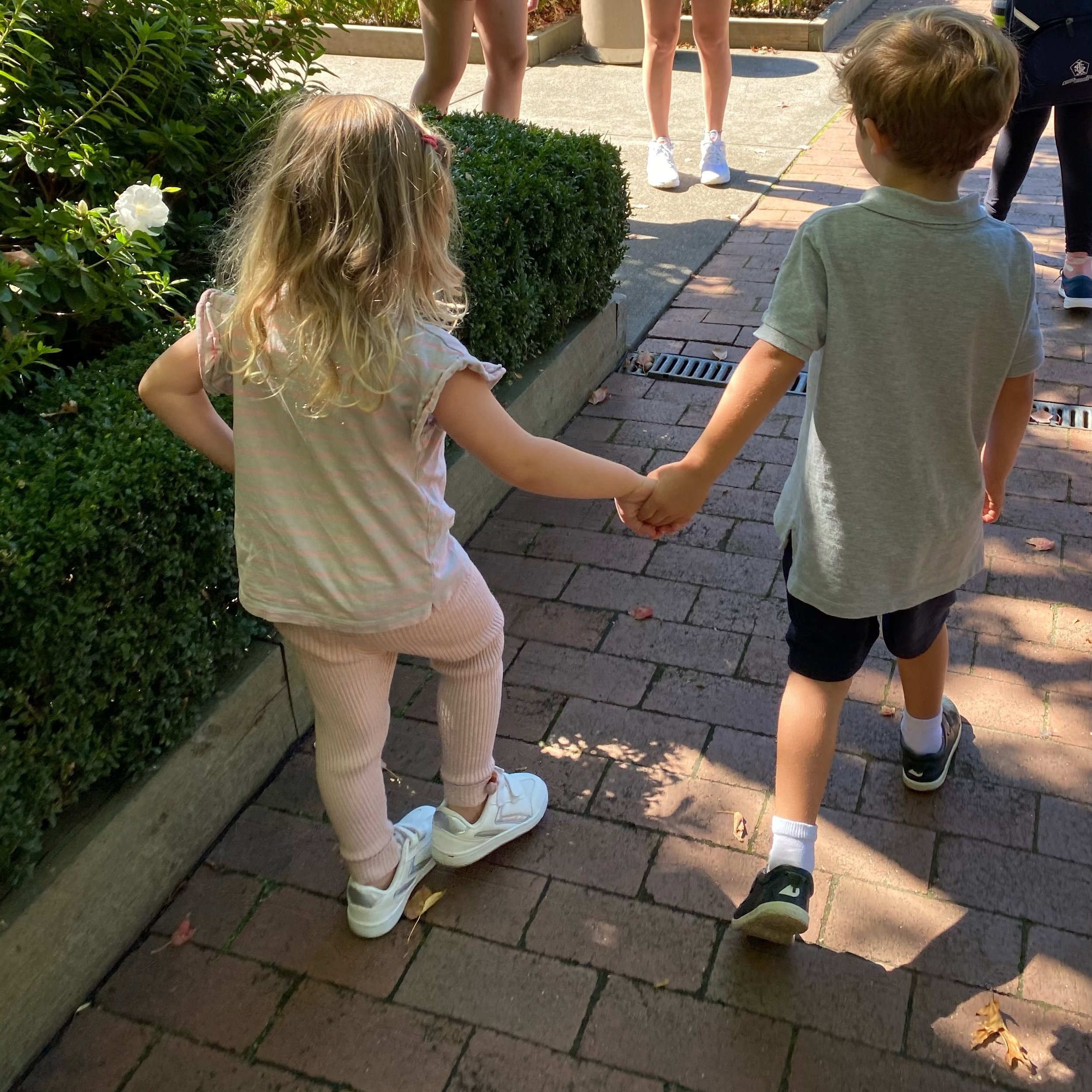The Wellbeing Budget: Understanding Family Energy
Managing Your Family's Energy Through Daily Transitions
Have you noticed times during the day that are harder than others? Have you noticed your energy flagging?
“We transition all day, every day, meeting to meeting, class to class, room to room, person to person, conversation to conversation, home to school and work and back again”.
Transitions take energy, they are a withdrawal from our Wellbeing Budget - on repeat.
Why Transitions Require Energy?
With each new place and space, person or conversation we begin processing differing expectations and needs, this takes energy. Newness is tiring, especially for young children as their brains are still developing. They look to us as role models.
“If we find it hard to constantly transition imagine, what must it be like for our children”.
Understanding your Wellbeing Budget
We all know about budgets and bank balances. If we withdraw more than we deposit, it’s a problem. This is a helpful way to understand our wellbeing.
If we withdraw more than we deposit, our wellbeing suffers.
There are many withdrawals each day, modern family life is complex.
We face challenges and opportunities all day
There are deposits too but, in our busyness, we may not notice or appreciate them as much as we could.
We may even keep withdrawing when our Wellbeing Budget is empty.
Over time our energy flags and we feel tired and overwhelmed.
It’s not intentional - it just is. The needs of others which are often loud and immediate, combined with limited time and resources means a mother’s needs are often overshadowed.
Parenting Energy and Awareness of your Wellbeing Budget
Plan for intentional deposits.
Know what lifts you, brings you calm, contentment and joy so you can meaningfully deposit
Recognise that withdrawals and deposits are different for each person
Key family transitions
Each of these moments requires energy from everyone involved:
Waking up and reconnecting with family
Transition to school
From parent to caregiver/teacher
Transition from school to home
Play to mealtimes or
Bathtime
Bedtime
All might be necessary but through the children’s eyes might also be an interruption to their play and autonomy. What about all the preschool and school transitions throughout the day? What a marathon!
Routines are Crucial for Family Transitions
Consistent, Predictable, Routines give us strength, and stability. They are a safe place. Known as CPR in The Berry Street Educational Model. They reduce newness and can be easily embedded over time in family life. Less energy and thought is needed when a routine is habituated. It’s just the way we do things.
In our family we have this morning routine:
Breakfast
Get dressed for school or kindergarten and
Then it’s Playtime.
This routine minimises decision fatigue and gives children clear expectations, saving everyone's energy for more important connections.
Leaving for School/Pre School signals
Teeth
Toilet
School bags and off we go!
Developing these simple, consistent routines gives your child autonomy and builds self worth. For you their autonomy is a deposit into your wellbeing budget. When routines are embedded there’s more time for connection, calm and conversations.
The Deep Breathing Technique for an Immediate Deposit
A powerful way to make a quick deposit into your wellbeing budget is through the 3D breathing technique. This simple practice stimulates your vagal nerve and a response from your parasympathetic nervous system, helping you calm.
Here's how to practice:
Breathe in slowly through your nose – a deep belly breath
Hold briefly
Exhale through your mouth (longer than your inhale)
Repeat three times - SLOWLY
It's remarkably effective during transition moments, taking just seconds and providing significant benefits. This small deposit can be made anytime, anywhere—while waiting at school pickup, before entering a meeting, or when feeling overwhelmed.
Family Transitions are hard, they are hard for everyone
Pause and tune in to
the sensations in your body
your energy level at any given time and
your wellbeing budget
Awareness enables action. Weave more deposits into your day - a five-minute quiet cup of tea, a brief walk outside, a moment of gratitude, or read a chapter of your book. These small but meaningful deposits can transform your wellbeing and your family life.

